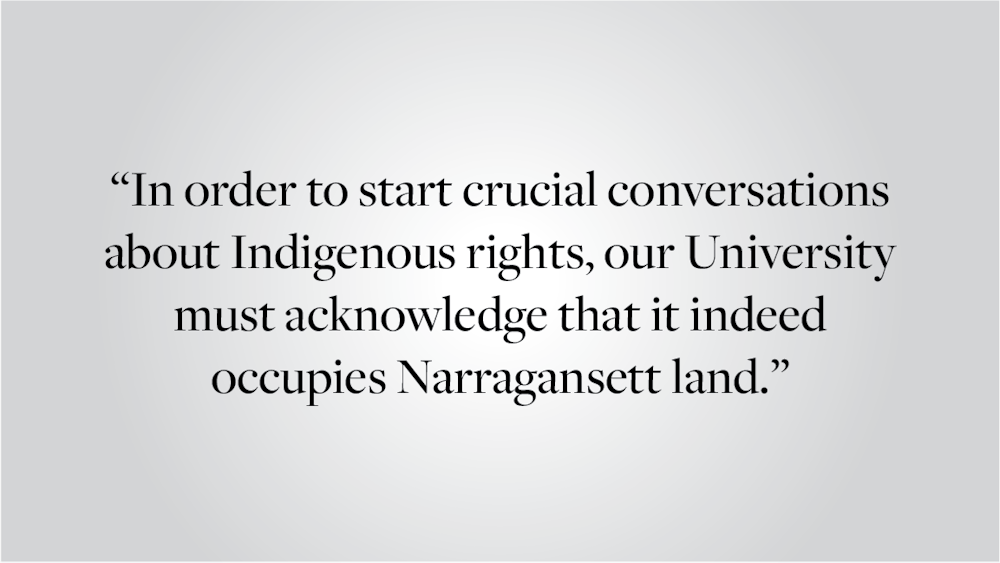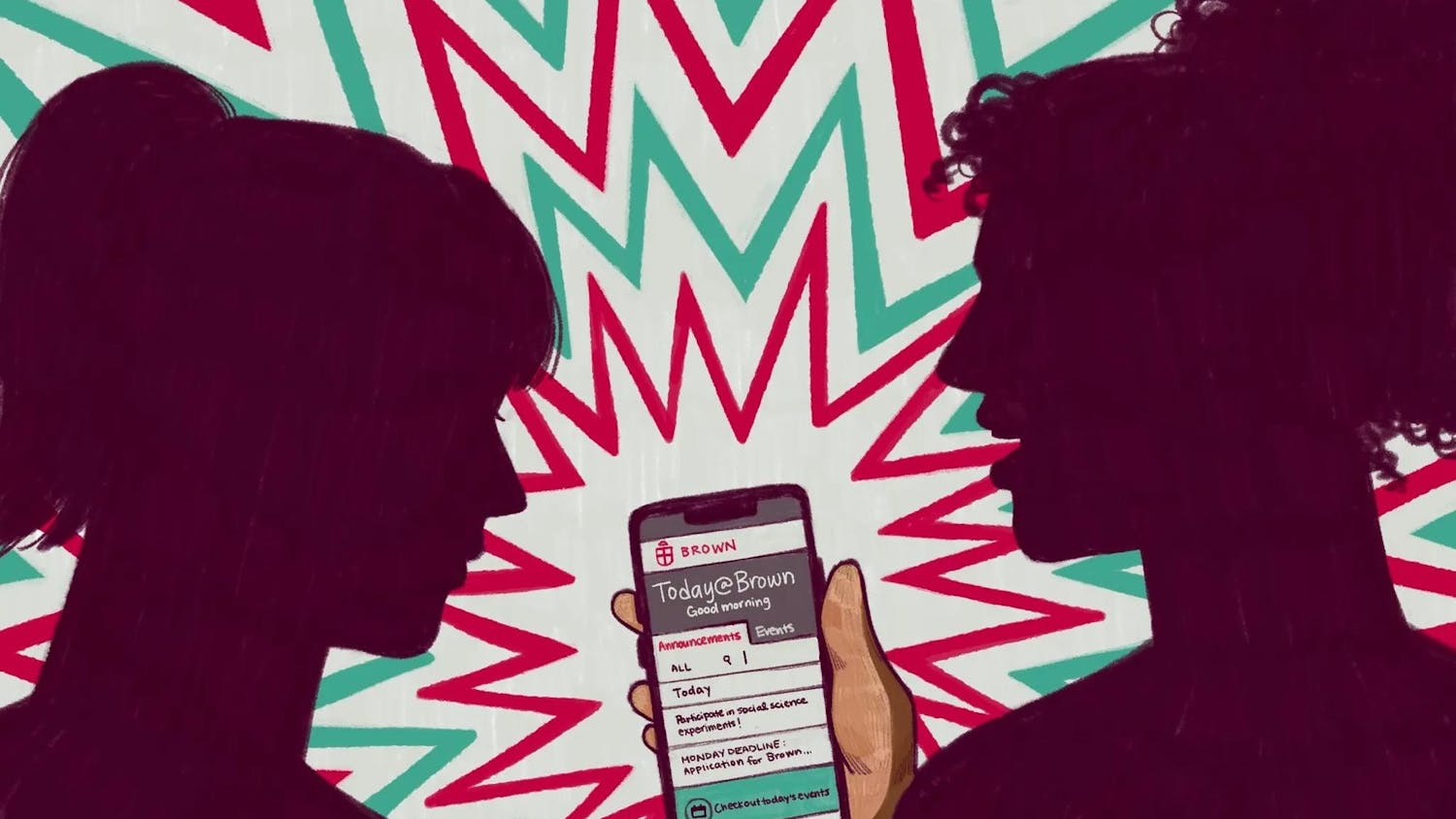This is Narragansett land. This is Narragansett land. This is Narragansett land.
I could say this phrase 1,000 times, and it still wouldn’t change the centuries of oppression the Narragansett tribe has faced in the Providence area. But saying it still matters ― in order to start crucial conversations about Indigenous rights, our University must acknowledge that it indeed occupies Narragansett land.
President Christina Paxson P’19’s recent announcement of the Land Acknowledgement Working Group’s recommendations was a welcome, albeit late, development. After centuries of occupying Indigenous land, the University’s administration finally seems to be moving in the right direction ― toward recognizing the Narragansett Nation’s sovereignty over Brown’s campus through an accurate and thoughtful land acknowledgment. Land acknowledgments are not merely symbolic or historical; rather, they are living statements that recognize the ongoing harms colonialist systems cause Indigenous peoples.
These statements can also provide opportunities for folks to recognize Indigenous contributions in whatever work they’re doing. For example, if a science department at Brown was delivering a presentation, giving a land acknowledgement highlighting Narragansett innovations in the sciences would emphasize the ongoing pertinence of Narragansett contributions to the University’s intellectual community. In this sense, land acknowledgments are not just about physical space, but all the ways Indigenous thought continues to permeate the intellectual spaces on campus.
Of course, effective land acknowledgments at Brown must be accurate. Erroneous land acknowledgements may incorrectly recognize the Pokanoket and the Wampanoag, for example, as Indigenous tribes that also lay claim to the land our University occupies. Such statements are simply ahistorical: The Pokanoket tribe is “not recognized by the other federally recognized Wampanoag communities,” as the Steering Committee of the Native American and Indigenous Studies Initiative noted. And despite assertions from land acknowledgements, the Wampanoag do not hold claim to College Hill. Suggesting otherwise would be doing a disservice to the true and present inhabitants of this land: the Narragansett Nation.
Although the intentions are often noble, erroneous land acknowledgements can actually do more harm than good. I’ll be transparent ― when I first heard about this issue, I wondered why raising awareness of other tribes alongside the Narragansett was a bad thing. Any statement that acknowledges land as Indigenous is good, right? But this assumption erases the fact that Indigenous people exist in intricate tapestries of different nations, tribes and sovereign bodies. To suggest that a group who holds no claim to an area is one of its stakeholders not only does a disservice to accurate historical representation, but it actively harms the actual inhabitants of the land. Incorrect statements can divert resources and attention away from the target community, which can be especially harmful when it needs those assets the most. After the Narragansett have endured so much as a sovereign , giving them a proper and factually sound acknowledgment should be the bare minimum.
Let’s be clear: The University’s recent statements will not reverse the oppression of the Narragansett people, which continues to this day, and the University's inaction continues to fail the Narragansett people. Still, Paxson’s announcement is an important first step that opens the conversation on land acknowledgments and Indigenous rights to the entire Brown community. And these recommendations have actually been reviewed by the Narragansett tribe.
But these recommendations will remain performative until the University converts them into action: giving more opportunities to Narragansett students to study at Brown, promoting partnerships between the University and the Tribe that are not extractionary but beneficial and giving the Narragansett people a voice in Rhode Island, a state that has severely neglected them. These are just a few steps that the University could take to rectify the many, many harms it has inflicted on the Narragansett people.
The Brown community must take these proposals seriously. With the situation in Ukraine getting more dire, it is important to defend the sovereignties of nations that have been subjugated by tyrannical aggressors. But sometimes those aggressors aren’t nations halfway across the globe, but those within our very home. The Narragansett Nation has been denied the rightful acknowledgement of its sovereignty for far too long. Let us join together to uplift the actual inhabitants of this land because this is Narragansett land. This is Narragansett land. This is Narragansett land.
Shazain Khan ’24 can be reached at shazain_khan@brown.edu. Please send responses to this opinion to letters@browndailyherald.com and op-eds to opinions@browndailyherald.com.





